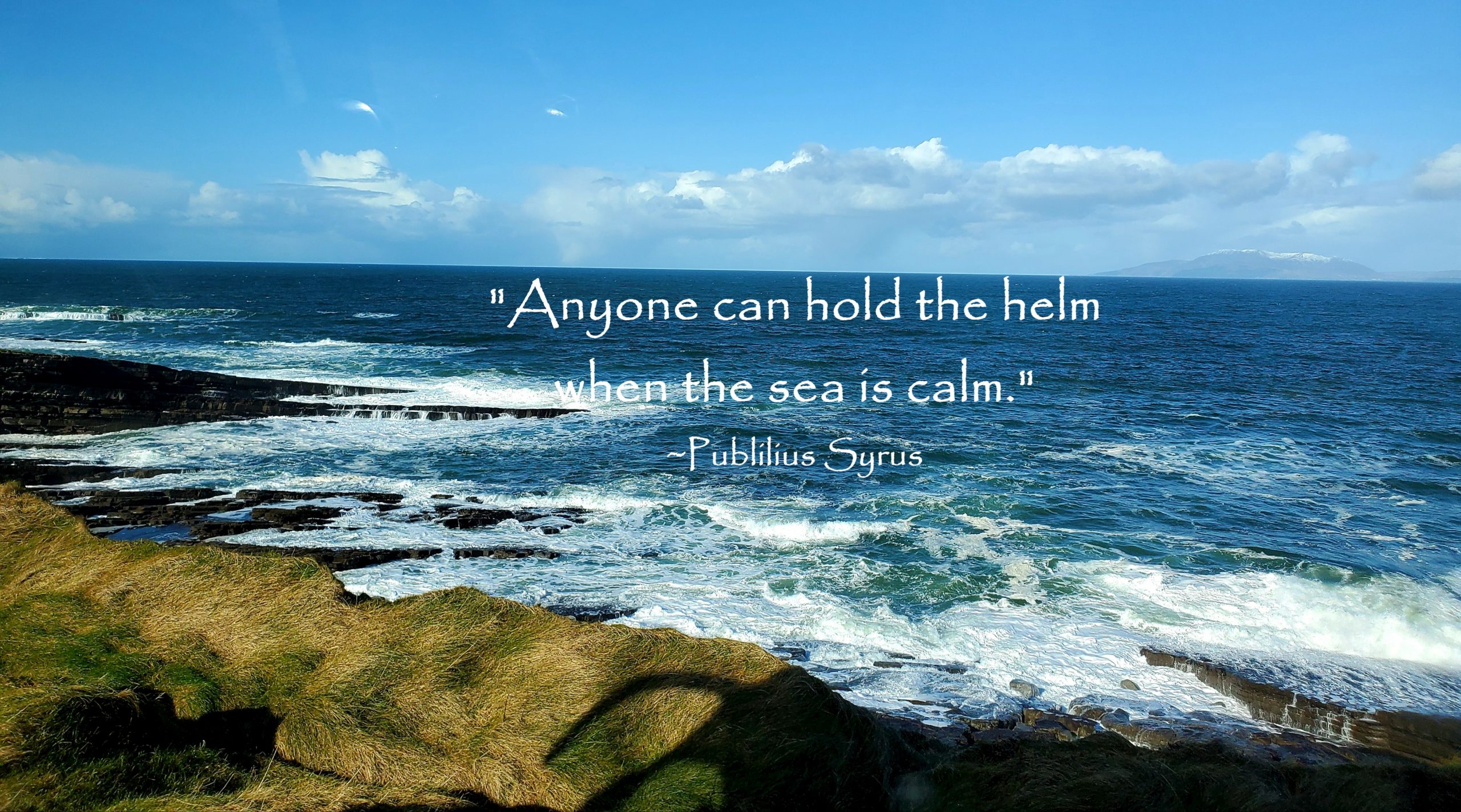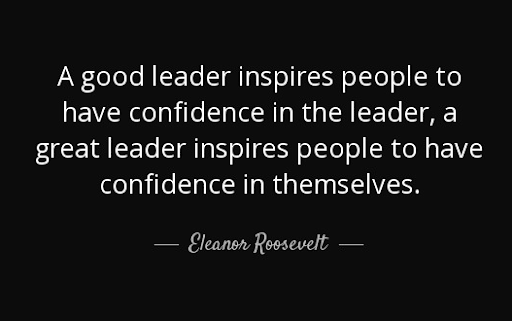Brave: “showing courage; enduring unpleasant conditions without fear.”
New: “not existing before.”
Normal: “conforming to a standard, usual, typical or expected.”
Yesterday, March 30, 2020, our Forsyth Technical Community College students will “return” from their Spring Break.
Normally, our students, faculty and staff would be returning to our campuses.
Normally, the energy would be almost electric, particularly for our seniors who are nearing the end of their higher education journeys at Forsyth Tech and preparing for their next journey – a new career or transfer to a university.
Normally, we would all be excited and eager for the end-of-year celebrations, award ceremonies, and especially Commencement – the apex of our school year and a culminating moment in the lives of around 1,500 or more Forsyth Tech students each year.
Sadly, this year, thanks to the COVID-19 pandemic, the return from Spring Break is anything but normal. All of us at Forsyth Tech, students, faculty and staff, are searching for a new normal in the face of our uncertain, short-term future. Frankly, our entire country and almost every other country in the world is at the same place – trying to figure out what normal looks like during a pandemic.
The number of people who have become sick with this virus worldwide is approaching one million with over 35,000 deaths, with almost 136,000 confirmed cases of COVID-19 in the United States, and that total is rising rapidly. To say people across the world are “anxious” would be a gross understatement – people are naturally afraid. Yet, examples of bravery in the face of this frightening and unprecedented crisis are abundant.
At Forsyth Tech and at colleges, businesses, and homes all around the world, people are showing incredible amounts of courage and I believe we are all doing our best to endure this situation with as little fear as possible. This is definitely a new situation for us all – a time that has certainly never existed before in most of our lifetimes. We cannot count on anything conforming to a standard or being usual – everything seems to be atypical and unexpected. We have been thrust into a new normal and we are not backing away, but rather courageously forging our Brave New Normal.
As I was thinking through the most important things that I wanted to share in this blog post today, I came across the quote below from another blogger.
“Trust the Wait. Embrace the uncertainty. Enjoy the beauty of becoming. When nothing is certain, anything is possible.”
Mandy Hale
For many of us, waiting is hard. We live in an “instant” society. If we need an answer to a question – any question – we simply ask Google or ask Siri and we get an answer . . . in an instant. If we are hungry, we run through a drive through and grab a quick meal . . . in an instant. If something happens in our hometown, our state, our country, or anywhere in the world, breaking news delivers it to all of us wherever we are . . . in an instant.
In our 21st century world, it is difficult to accept that we cannot find a quick fix to this problem. COVID-19 has thrust us into an unpredictable and unfamiliar place — whether we want to be there or not, we have no choice but to live through and wait out this very uncertain time. We want to find a solution and we want everything to just be normal. We find comfort in our normal – we know what to expect and we know relatively what our days will be like. We have set routines and we like the predictability of the familiar.
Creating a Brave New Normal
Right now, the entire state of North Carolina, and many other states, have been ordered to “Stay-at-Home” – for that matter, whole countries around the world are on lockdown. We find ourselves in a precarious, unpredictable and unfamiliar place. That is a hard place to be and we are naturally fearful of the unknown.
There is no instant solution for COVID-19 that will get us back to normal, and as hard as it may be to comprehend and accept, we may never get back to the same normal we had before. This pandemic is causing a lot of fear – understandably so for many reasons – and I believe one of the things we fear more than anything else is that we will not get back to normal. The thought of things being permanently disrupted and never returning to normal is creating, at least some small measure of fear in most, if not all of us.
Ralph Waldo Emerson said,“Do the thing we fear, and death of fear is certain.”
I have found this to be true in my life many times. Fear can be paralyzing. Of course, there are times when fear is justified and we are rightfully afraid, but I have also found, fear of what will happen is often is much worse than the actual result. Regardless of whether we are right to be fearful or our fear is overblown, I think Mr. Emerson had it right – one sure way to kill the fear is to face it head on . . . rip the band aid . . . take action and move past whatever it is we fear . . . be brave.
There is nothing easy about creating a new set of expectations that never existed before, a new normal, in the middle of a worldwide pandemic and there will certainly be consequences and trade-offs. For example, we know from years of research and data that college students who are engaged and connected in meaningful ways outside the classroom in academic and non-academic clubs and activities, are more successful. At the moment, the new normal for our students is all instruction and support services being delivered remotely. Opportunities for in-person connections and engagement are not possible right now and our students are forced to complete their coursework at a distance. If they engage with faculty and staff or with each other right now, it is primarily if not solely, at a distance.
I am often asked as a president what I lose sleep over. Right now, I am losing sleep over the impact of the new normal on our students. I am worried about equity. Many of our students do not have Internet access at home and many do not have computers at home – they may already be taking online classes, but they are using our computer resources to complete their coursework – when we are closed that option is not available to them. Many of our students have never taken an online class and I know they will struggle to understand how to be successful without the structure and direct contact of the in-person classroom. Many of our students are adults who work and are responsible for families and now, they are out-of-work and struggling even more than normal to make ends meet. Many of our students depend on day-to-day personal and in-person interaction and engagement with faculty and staff to keep them moving forward, and now, that is not part of their new normal.
As Forsyth Tech’s president, my greatest fear is the impact of this pandemic on our students’ success. Our faculty and staff share that fear – they too are worried about how our students will be able to successfully navigate this COVID-19 storm. However, rather than letting the fear paralyze us or de-motivate us, we have decided that we can do more than just accept a new normal. We are embracing our vision of being a catalyst for equitable economic mobility, empowering lives and transforming communities. We are creating a Brave New Normal.
All around the world, in the middle of this unprecedented pandemic, we continue to see examples of people coming together like never before to support each other and help each other. Personally, over the past few weeks, I have intentionally chosen to ignore the bad examples of how people are handling COVID-19 and focus on the positive and uplifting stories that continue to rise out of this unimaginable, scary time (perhaps it my “coping” mechanism). I have been amazed by the “good” that is coming out of this incredibly “bad” situation, and I have been blown away by the response of the community colleges in North Carolina and higher education community throughout the country, and I am especially proud of the way our Forsyth Tech family has responded.
We could have simply accepted the disruption to our “normal”, put content online for those students who could access it, and accepted the fact that a lot of students would be forced to withdraw. We. Never. Even. Considered. That. As. An. Option.
Instead, so many others around North Carolina and throughout our country, the amazing faculty and staff at Forsyth Tech stepped up and showed off!
- We challenged the status quo by refusing to accept predetermined consequences – you will not find a “what will be will be” attitude at our college.
- We embraced the mantra that we would get through this together by loving and serving our students and each other.
- We refused to merely move everything online because we know that will not be a good solution for many of our students, and because we live our vision that is built around and grounded in the foundational principle of equity of success for all students.
- We believed that our students and our communities needed us to be leaders and we calmly, confidently, courageously and compassionately built remote learning and support services aimed at keeping every student on their pathway to their dreams.
We created a Brave New Normal for ourselves and our students, recognizing there is not quick fix and there will not be a “one and done” solution. We will have to remain fluid and flexible, adjusting our Brave New Normal when and as needed. That is how we get through this strange and crazy moment in time that we did not anticipate – with courage and compassion – bravely building our new normal together.



 One of the most widely recognized characteristics of a strong leader is grace under pressure — being able to control your own emotions, so you can help others remain level-headed when their emotions are rising or unsettled. Teachers know that projecting calm is the best way to settle down a class — by speaking calmly yet assertively they illicit the emotion in their students that they are projecting.
One of the most widely recognized characteristics of a strong leader is grace under pressure — being able to control your own emotions, so you can help others remain level-headed when their emotions are rising or unsettled. Teachers know that projecting calm is the best way to settle down a class — by speaking calmly yet assertively they illicit the emotion in their students that they are projecting. 